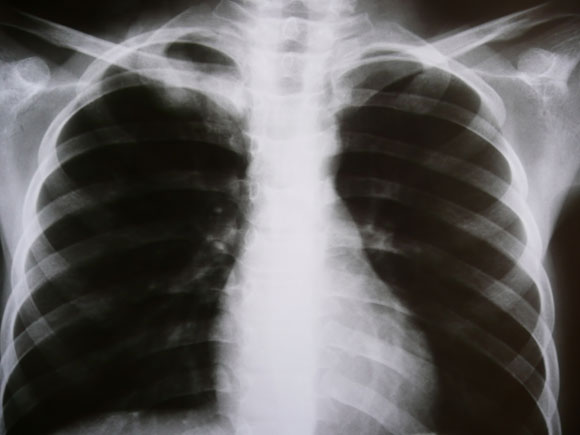
On January 2 Science journal published an article that said two-thirds of cancers in adults across tissues are primarily “bad luck”. The research paper -- “Variation in cancer risk among tissues can be explained by the number of stem cell divisions” -- explains that most incidents of cancer are a result of random mutations in genes that can drive cancer growth.
This is perhaps why we come across cases where a person who hasn’t touched a cigarette in his life and has healthy habits sometimes ends up with cancer, while one who is a chain smoker and leads a sedentary lifestyle might escape it.
The research by Cristian Tomasetti and Bert Vogelstein, scientists at the Johns Hopkins Kimmel Cancer Center, has triggered a debate. It has also raised many questions. If most cancers are a result of random mutations, what roles do environmental and genetic factors play? How helpful then are cancer vaccines such as those for cervical cancer?
And what about the concept that certain healthy habits and conscious decisions can help prevent some cancers? Last year, for example, Angelina Jolie underwent double mastectomy after she found that she carries the BRCA gene that makes her 50 per cent susceptible to the disease.
She took this preventive measure because her mother had died of ovarian cancer at 56. If random mutations are such a significant factor, do decisions like the one Jolie took count?
The answer is yes, they do. Though some quarters have termed the research as ‘deceptive’, the fact is that the Johns Hopkins scientists have not ignored the environmental and genetic factors.
Neither have they discounted preventive measures. The scientists observed that while random mutations are a significant contributor to cancer, one-third of cancers can be explained by other factors or a combination of factors (erroneous and random mutation, environment, lifestyle and hereditary).
The researchers statistically charted the number of stem cell divisions in 31 tissues. They then compared these with the lifetime risks of cancer in the same tissues and found a correlation between the number of stem cell divisions and cancer risk.
“The paper is very good in trying to establish that over a lifetime, the more the number of divisions, the more the mutations and the higher the probability of a person getting cancer,” says Saleem Mohammed, CEO of Chennai-based Xcode Life Sciences that runs a DNA-assessment programme which identifies a person’s genetic predisposition for certain diseases.
The colon tissue, for example, undergoes four times more stem cell divisions than the small intestine tissue in humans, the scientists explain. And it is observed that cancer of the colon is more prevalent in humans than cancer of the small intestines.
“The fact is that cell division happens all the time in the body,” says Mohammed. Nails grow, dead skin cells fall off and new cells take their place and so on.
“During this continuous process of cell division, erroneous and random mutations also happen,” explains Shubham Sogani, CEO of House of Diagnostics and PET Suite, a specialised cancer diagnostic technology at Indraprastha Apollo Hospital in Delhi.
“Though the body has its repair mechanism (immune system), which checks and fixes these mutations, sometimes this repair mechanism doesn’t work very well and the mutation in a particular strand of DNA happens again and again and can turn into a malignant tumour.”
Of the cancers in the 31 tissues they studied, the researchers found that 22 cancer types could be largely explained by random DNA mutations (or “bad luck”). The other nine had higher risks than predicted by the number of stem cell divisions, they found.
These were cancers where other factors came into play. An example of this is lung cancer, which is linked to smoking. The scientists, in fact, make this point when they say that a heavy smoker not ending up with cancer is plain ‘good luck’ because the chances that he will are actually high.
“At least one-third of all cancers are preventable,” says Indu Aggarwal, senior medical officer in the department of preventive oncology department at Rajiv Gandhi Cancer Institute and Research Centre, Delhi.
“For example, oral cavity cancer, of which we get the maximum number of cases, is almost totally preventable. Nearly 90 per cent of patients who come to us with oral cavity cancer are people who have been chewing tobacco or smoking bidi or hookah.”
Tobacco and alcohol consumption, physical inactivity, obesity and environmental factors such as exposure to radiation, all increase a person’s risk of getting cancer. There is enough evidence to prove this.
In Punjab’s Muktsar belt, for example, contamination of ground water by pesticides has led to an alarming rise in the number of cancer cases. In other cancers, such as those of the breast, cervix and pancreas, genetics comes into play. “Besides a person’s genetic predisposition to cancer, a family history of cancer can also increase the risk because the family might be sharing the same environment,” says Aggarwal.
So what is the point that the study makes? It says a majority of cancers are not in our control and can be triggered randomly by erroneous mutations -- the “bad luck” factor.
So, besides focusing on prevention, medical science and cancer research has to start working harder to detect and treat cancer at an early stage when it is curable. This is where the importance of cancer screening comes in.
While we are still at an early stage of trying to understand the intricacies and causes of cancer, testing for genetic propensity, making lifestyle changes and cancer screening can equip a person to prevent or fight the disease better. “Freak accidents, like random mutations, can happen,” says Sogani.
“But that doesn’t mean we stop being cautious when we are on the road.”